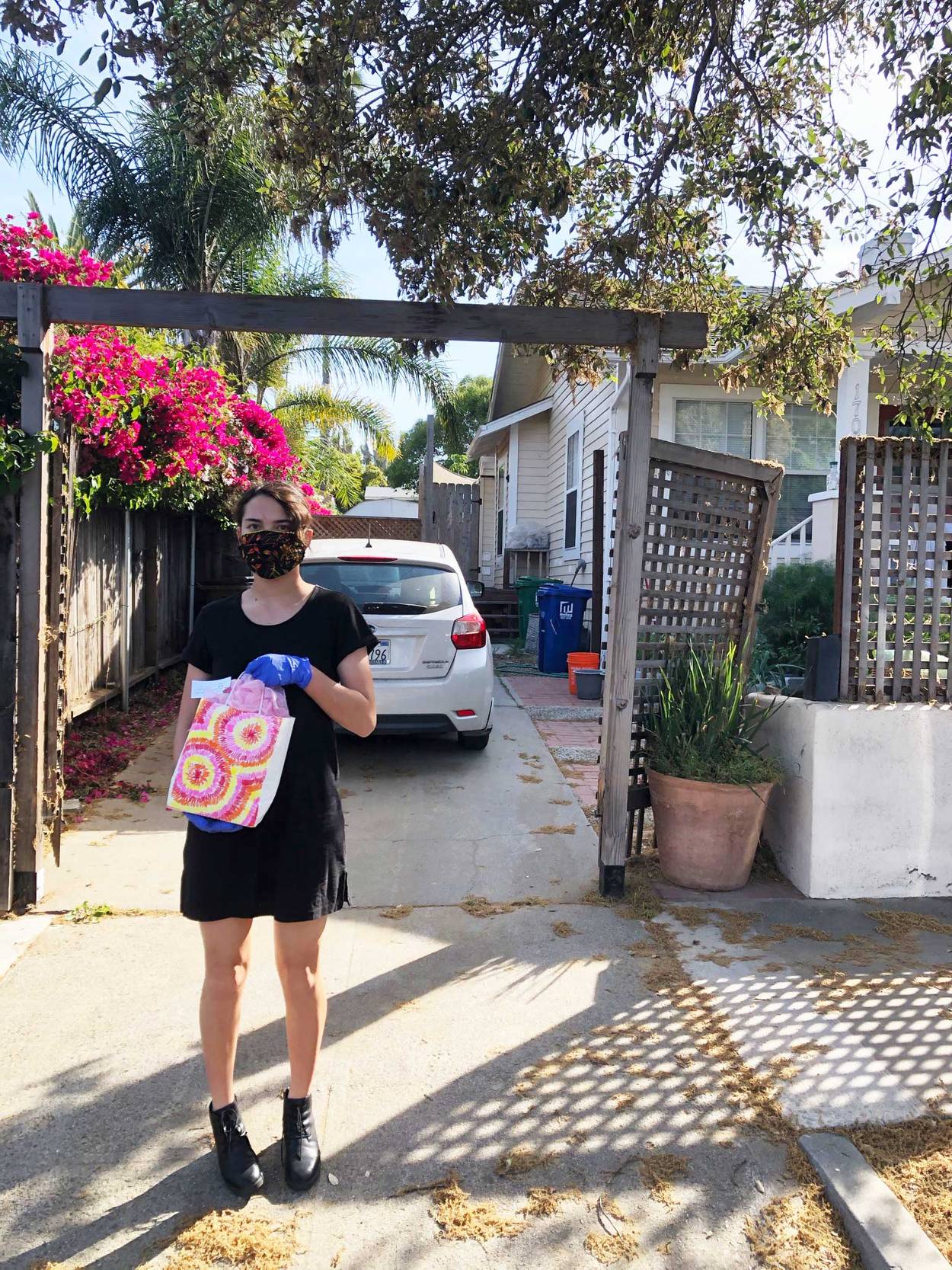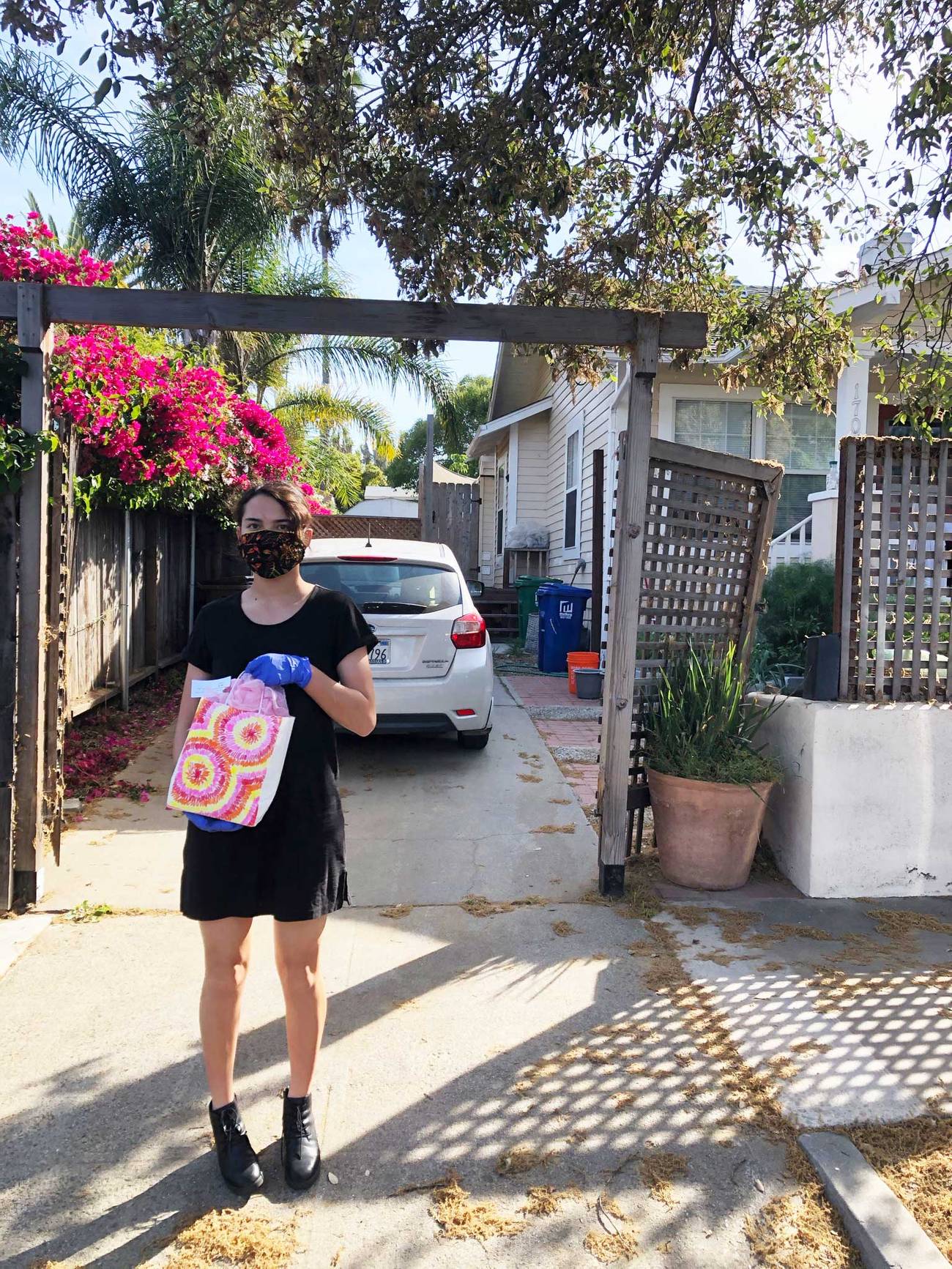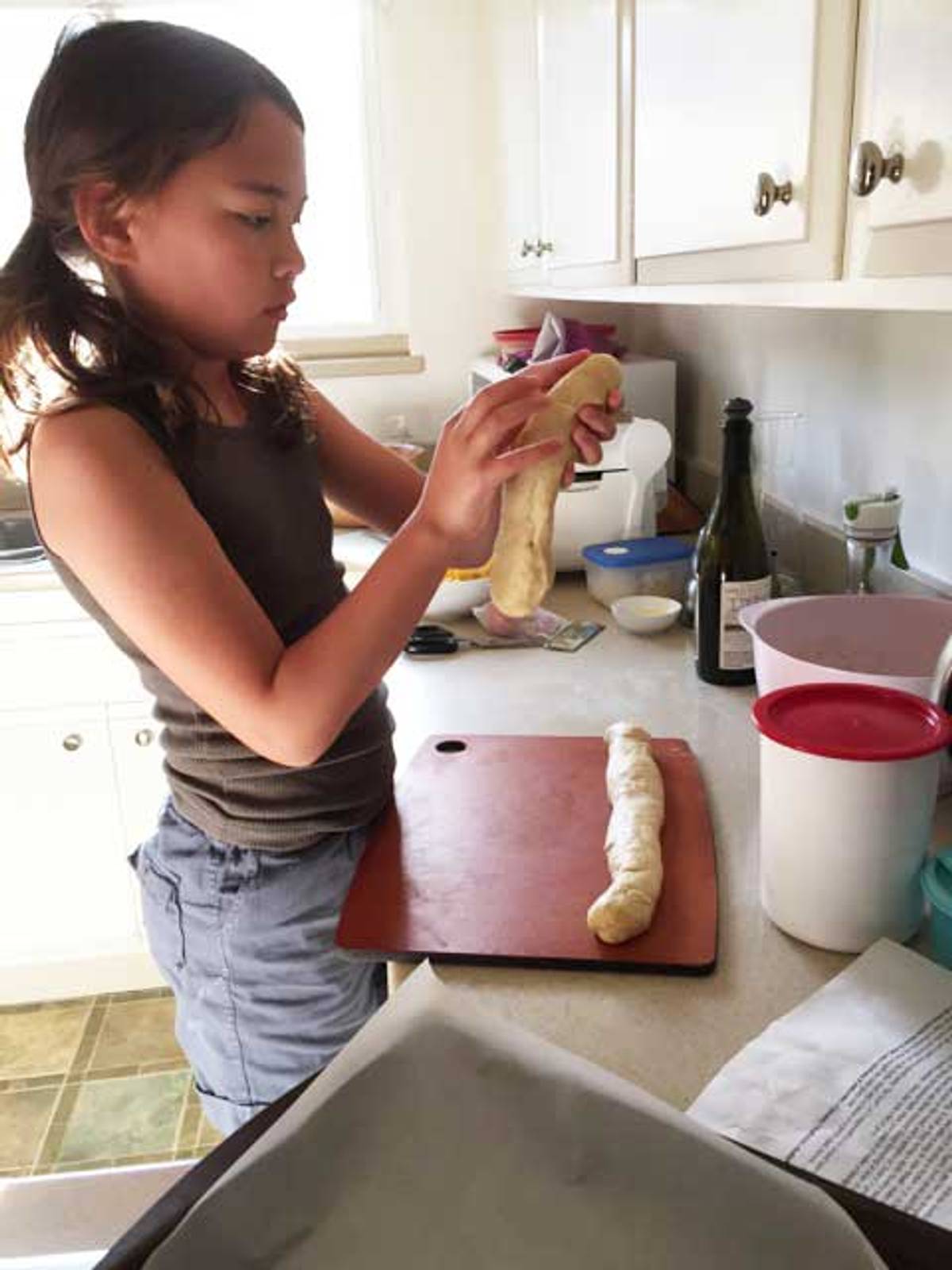The Challah Connection
What began as a bat mitzvah project has evolved into a way to stay connected during a pandemic




As I was preparing for my bat mitzvah at the beginning of 2018, devastating natural disasters struck Southern California—affecting my hometown of Santa Barbara and my synagogue, Congregation B’nai Brith. In January, heavy rains caused mudslides that killed 23 people—just weeks after more than 1,000 buildings and 400 square miles burned in the massive Thomas Fire, which at the time was the largest wildfire in California history. It was a time of great loss and natural devastation.
One aspect of becoming bat mitzvah involved finding a way to help my community and grow into my new role as a Jewish adult. I felt like it was my responsibility, as someone who was relatively unscathed by the disasters, to do what I could to help those in need.

I thought that one way I could help to alleviate some of the pain felt by the community was to bake challah to deliver to several families that had been affected by the disasters. Baking has always been a big part of my life, and in this way, I could help my community while doing something that I love. Challah also has a nostalgic quality to it: Since I was a preschooler at Beit HaYeladim, I had baked loaves on Friday afternoons for Shabbat dinner. I thought that the traditional bread would lend some personal comfort to people who needed it.
Since then, I have baked and delivered challah to socially isolated community members bimonthly. This project was dubbed “Challahlujah,” and the name stuck. Initially, I enjoyed the project because I love to bake, but the idea of delivering challah to people I did not know made me feel awkward. However, as I talked to the people I visited, the awkwardness subsided and meeting people and hearing their tales became important to me. Along the way, I heard wonderful stories and perspectives from the people I have met who are elderly, sick, or have just started a family with new babies. One elderly man I met had been a pharmacist during WWII. He told me about how when he was younger, women could not be anything but nurses and teachers and how much society had changed since then. Another woman I visited sent me a folder of poetry she had written on floral paper in an elegant handwritten cursive script, which is a rarity in today’s world.
In the wake of the mosque shooting in Christchurch, New Zealand, in March 2019, I reached out and delivered challah to Muslim families in the Santa Barbara area. In return, one family gifted me with a box of Turkish delights. This interaction, as well as the many others I experienced, made each delivery unique and impactful.
It was these personal stories that pushed me to continue the project even after we were no longer in a time of emergency. Every other month, I would get a list of four or five community members from the congregation’s director of community engagements and bake the number of challahs needed, plus one for my family. I would wrap them in parchment paper and put them in paper bags alongside Shabbat candles, and my dad and I would drive through town delivering them to people’s homes.
In March 2020, after the World Health Organization declared the coronavirus to be a worldwide pandemic, I found myself baking for a new kind of disaster. I was making challahs that would be delivered if and when community members fell ill, potentially with COVID-19. As usual, I baked a triple batch of challah. Everything was the same as always, right until the loaves came out of the oven to cool. Instead of wrapping the challahs in parchment paper and putting them into paper bags with Shabbat candles, they were zipped into airtight freezer bags and stacked one on top of another. Instead of being delivered all over town to dinner tables, I took them to the synagogue to sit in a freezer for at least 72 hours—not only to store them, but to ensure the absence of the virus for the safety of those I delivered to.
Several weeks after the pandemic began, the loaves had all been delivered. To whom they were delivered to, I do not know, and it saddened me that I was unable to reach out and connect with them.
In an effort to maintain social connection with the people I deliver to, I tried a different approach next time. A good friend and I decided to work together. Because neither of our home kitchens was large enough to properly maintain social distancing, we transitioned to baking in the synagogue kitchen. We donned masks and kept our distance from one another as we prepared packages, including homegrown lemons, word games, and challah, for eight people. To maintain some form of connection with the people we were delivering to, we wrote letters to each person we visited. Poignantly, the notes that we wrote to connect with people through this difficult time had to be wiped down with Clorox wipes and placed into bags by our rubber-gloved hands.
It was this difference that made me realize how the coronavirus differed from previous disasters. This project had, after all, been born in a time of loss and uncertainty. In previous disasters, when people were evacuated from the Thomas Fire or subsequent mudslides, they were taken in by friends and family. When they were injured and lost their loved ones, they turned to their communities for support. Delivering challah just felt like an intuitive thing to do: The picture of Shabbat candles and bread is one of comfort, and was sorely needed in a time when people had lost their homes.
Now, in this disaster, we have to distance ourselves from each other. This virus is as unpredictable as it is uncontrollable, and the best we can do to control it is to hunker down, stay inside, and avoid as much human contact as possible. Part of what makes the current situation so difficult is that in a time when we most need to seek out other people for support, we have to keep our distance. Delivering bread to the vulnerable would potentially be dangerous and in our social isolation, it can be easy to feel helpless and to lose hope.
However, knowing the impact that we can have on others can be reason enough to remain hopeful. Shortly after I delivered a care package to one couple, I received an email from them thanking us for the bag. They had been socially isolating for seven weeks, and the challah, fresh lemons, and word games had lifted their spirits.
I see that people all over the world are finding ways to help: Thousands of homemade masks are being donated to clinics and stores. People are delivering groceries to elderly neighbors. Health care workers are being cheered in the streets for their efforts. And I am continuing to bake challah, albeit under different conditions. What started as a simple bat mitzvah project has grown into something much more meaningful, and I am so glad that I have had this opportunity to help the people in my community.
Hopefully, when all of this is over, we can remember how we helped one another when things seemed at their bleakest. We can remember that as social animals, it is our base instinct to help one another. And lastly, in an attempt to find a silver lining, this experience will teach me not to take the casual companionship of day-to-day life for granted.
Isabelle Kim-Sherman is a ninth grader in Southern California.